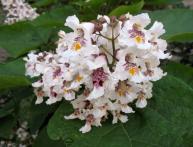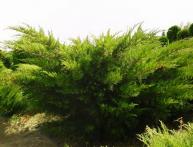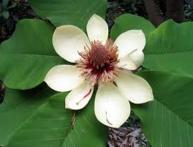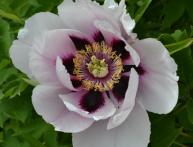Camphor laurel: beneficial properties and use of camphor in everyday life

The camphor tree plays an important role in modern medicine, as it is related to essential oils. Another name for this medicinal plant is camphor laurel.
Camphor laurel is used and his oil for medical and cosmetological purposes, in veterinary medicine and aromatherapy.
Content:
Description of camphor laurel

Camphor laurel is an evergreen tree of the Laurel family. Can reach a height of up to 50 meters.
The diameter of the tree trunk is 5 meters. The bark is rough and may be light gray or dark gray in color. The buds of the plant are ovoid in shape with multiple scales. The flowers of the medicinal plant are small and yellow.
The leaves of camphor laurel are arranged alternately, have an elliptical shape, leathery and pointed at the top.
On them you can find multiple translucent dots that contain essential oil. Most camphor oil is found in the lower part of the tree trunk.
To obtain camphor (colorless crystals), the tree is cut down and crushed roots, shoots, leaves. After this it is ground into powder.
Next, the powder is subjected to steam distillation, resulting in an essential oil. Natural camphor is obtained by cooling the essential oil.
An oily liquid with a strong camphor odor may be pale yellow or completely colorless. The resulting natural oil is used in medicine, and white oil in aromatherapy.
Properties and uses of camphor

The essential oil obtained from the camphor tree is used for various purposes. Camphor is used to combat harmful insects and moths.
Camphor laurel has many beneficial properties. For medicinal purposes, the medicinal plant has anti-inflammatory, antiseptic, decongestant, expectorant, analgesic, softening properties.
Camphor oil and camphor are used to treat:
- Rheumatic diseases
- Muscle pain
- Bronchitis
- Lung congestion
- Asthma
- Arthritis
- Gout
- Heart failure
- Toothache
- Headaches
Camphor laurel improves blood circulation and pulmonary blood flow, stimulates the vasomotor center, relieves nasal congestion, promotes sputum separation, and relieves fainting and shock.
Some oral care products also contain camphor oil. Camphor helps relieve gum inflammation and improve blood circulation. Camphor oil also effectively combats the phenomenon of bad breath.
Camphor helps with collapse, infections, pneumonia, and intoxication with certain sleeping pills. It has a stimulating effect on the respiratory as well as the vasomotor centers of the brain.
For cosmetic purposes, camphor laurel has anti-inflammatory, cooling and soothing properties. After applying the oil to the skin, itching, inflammation and irritation disappear.
Camphor helps get rid of skin diseases and regulates the functioning of the sebaceous glands. As a tonic, camphor oil has a beneficial effect on the skin, refreshes and rejuvenates it and promotes cellular metabolism.
The oil has a beneficial effect on hair and eyelashes, helps strengthen them and restore brittle, dry and damaged hair.
Camphor tree oil is effectively used in aromatherapy. Its beneficial properties affect a person’s psycho-emotional state: it helps to relax, relieve fatigue, and lethargy.
Medicinal oil can used not only for medicinal, but also for preventive purposes, for massage, rubbing, etc.
For external use, camphor is used as an antiseptic, against itching and for burns, frostbite, wounds, bedsores, bruises, etc.
Camphor ointment is used in veterinary medicine. For dislocations and sprains, the drug is rubbed on the affected areas.
Powders and tablets are made from camphor for oral use. Alcohol and oil solutions are used externally.
Camphor preparations can be purchased at the pharmacy. They are available in various dosage forms: oil solution in 20% ampoules, ointment, alcohol, solution in paraffin oil, Camphocin.
When not to use camphor

In addition to its beneficial properties, if camphor is used excessively, it can to harm. When used externally, adverse reactions such as urticaria may occur.
Highly concentrated camphor can cause burns and inflammation if it comes into contact with sensitive areas.
Internal use of camphor oil should be strictly agreed with a doctor. Only a qualified specialist can determine the dosage.
In case of an overdose, convulsions, hypertension, dizziness, migraines, vomiting and other similar symptoms may occur. The use of camphor oil or alcohol is prohibited during pregnancy and lactation, and for people prone to convulsive reactions.
The use of camphor-based drugs should be avoided for various nervous system disorders that are accompanied by excessive overexcitation.
Video on how to properly isolate camphor from camphor alcohol for personal use:
Interesting information about the vegetable garden










